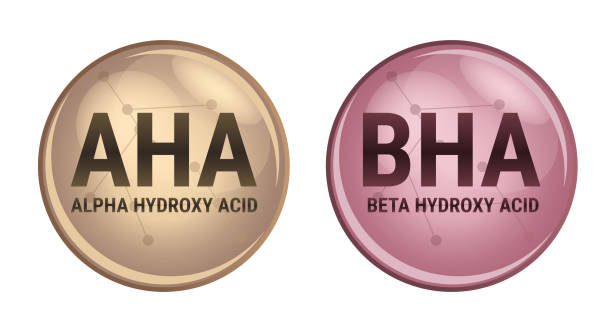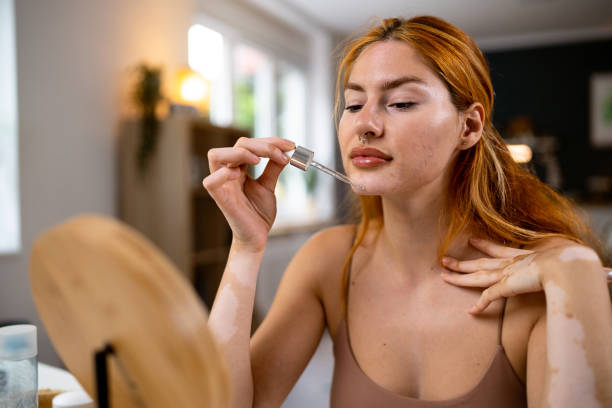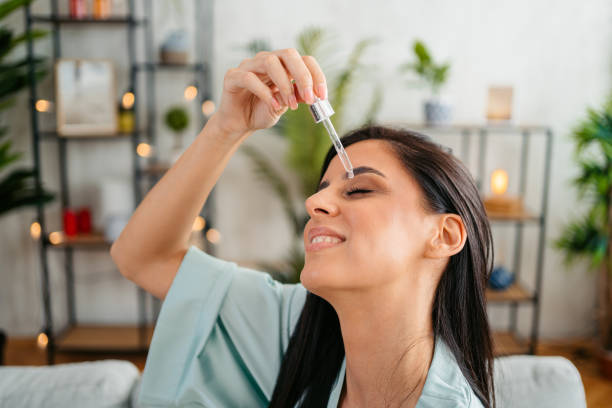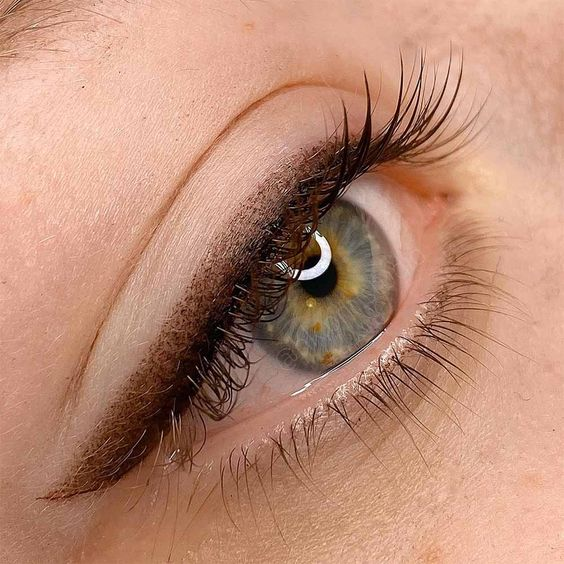When it comes to creating an effective skincare routine, certain ingredients are lauded for their impactful benefits. Among them, Vitamin C, known for its brightening properties, and BHA (Beta Hydroxy Acid), renowned for its ability to exfoliate, stand out. But can you safely incorporate both into your regimen? This article delves into the compatibility of Vitamin C with BHA and provides guidance on how to use them together to achieve a radiant, clear complexion without compromising skin health.
What are Vitamin C and BHA?

Vitamin C is a potent antioxidant that plays a pivotal role in collagen synthesis and helps in combating photo-damage. It’s praised for its ability to even out skin tone and boost overall skin radiance. On the other hand, BHA is an oil-soluble exfoliant that works deep within the pores to slough off dead skin cells and clear out impurities. It is particularly beneficial for individuals with oily and acne-prone skin, as it helps to reduce blemishes and blackheads.
The Debate: Can You Use Vitamin C with BHA?

The combination of Vitamin C and BHA raises questions within skincare circles. While some argue that the acidic nature of both may lead to over-exfoliation and skin irritation, others believe that when used correctly, these ingredients can harmonize and enhance each other’s effects. This article aims to clarify this debate with evidence-based practices and professional advice on safely using Vitamin C with BHA in your skincare routine.
How Vitamin C and BHA Work Together
Despite their different roles, Vitamin C and BHA can be complementary. Vitamin C’s antioxidative properties can help mitigate the potential irritation caused by BHA’s exfoliative action. Furthermore, BHA can prepare the skin to better absorb Vitamin C, increasing its efficacy. When both are formulated at appropriate pH levels and concentrations, they can provide a synergetic effect, improving skin texture, reducing hyper-pigmentation, and promoting a youthful glow.
The Benefits of Combining Vitamin C with BHA
Pairing Vitamin C with BHA can revolutionize your skincare game. Not only does Vitamin C shield the skin from environmental aggressors, but combining it with BHA promotes cellular turnover, revealing fresher, less damaged skin. Here are three main benefits you can anticipate when introducing both Vitamin C and BHA into your skincare routine:
- Enhanced skin brightness and clarity, as Vitamin C’s antioxidative nature works to fade dark spots and even skin tone.
- Improved skin texture and the reduction of blemishes, due to BHA’s ability to penetrate the oil in pores and exfoliate the skin internally and externally.
- Anti-aging effects as the increased collagen production from Vitamin C and the exfoliation from BHA work to reduce the appearance of fine lines and wrinkles.
Best Practices for Using Vitamin C and BHA Together
To leverage the benefits of these ingredients without provoking skin irritation, it’s essential to follow best practices. Begin by choosing the right concentration of each ingredient based on your skin’s sensitivity and tolerance. Always introduce new products one at a time to monitor your skin’s response. As for the application:
- Start with a lower concentration and gradually work your way up.
- Apply products in the correct order: typically, BHA first followed by Vitamin C serum.
- Space out the application if you experience any discomfort or adjust the frequency as needed.
Tips for Safe Application
A cautious approach is paramount for incorporating active ingredients like Vitamin C and BHA. To avoid adverse reactions and acclimate your skin to these actives, consider the following tips:
- Perform a patch test on a small area of your skin to check for any allergic reaction or severe irritation.
- Introduce each ingredient slowly, starting with 2-3 times a week and increasing the frequency as your skin adapts.
- Always use a broad-spectrum sunscreen during the day, especially when using products that may increase photosensitivity.
Potential Side Effects and How to Mitigate Them
Like many skincare products, using Vitamin C and BHA can come with side effects, particularly during the initial stages of use. Here are some common side effects you might experience:
| Side Effect | Preventive Measure |
|---|---|
| Skin Irritation | Choose products with lower concentrations of active ingredients. |
| Redness | Apply a soothing moisturizer after your active ingredients to calm the skin. |
| Dryness | Increase hydration by including a hyaluronic acid serum or a richer moisturizer in your routine. |
Skin Type Considerations
While Vitamin C and BHA can benefit a wide range of skin types, it’s crucial to tailor their use to your specific skin concerns and sensitivities. For example, oily and acne-prone skin may tolerate higher concentrations of BHA, while dry or sensitive skin might prefer a lower-strength formula or less frequent application. Below you’ll find a guide to adjust your use of Vitamin C and BHA according to your skin type.
| Skin Type | Vitamin C Recommendation | BHA Recommendation |
|---|---|---|
| Oily/Acne-Prone | Use a form of Vitamin C known as L-ascorbic acid for potent effects. | Opt for a regular BHA concentration as your skin is likely to handle it well. |
| Normal/Combination | Start with a moderate concentration of Vitamin C for balance. | BHA can be used in moderation to target specific areas of concern. |
| Dry/Sensitive | Select a Vitamin C derivative that’s less irritating than pure ascorbic acid. | Use a low concentration BHA or apply it less frequently to prevent drying out the skin further. |
Conclusion
The partnership of Vitamin C and BHA in your skincare routine can seem daunting at first, but with the right knowledge and application, it can lead to transformative results. These powerful ingredients, when used carefully and responsibly, can bring about a noticeable improvement in skin health and appearance. Pay attention to your skin’s specific needs, prioritize sun protection, and you might just find this dynamic duo to be a game-changer for your complexion.
FAQs About Using Vitamin C with BHA
Q1: Is it safe to use Vitamin C and BHA at the same time?
A1: Yes, it is generally safe to use Vitamin C and BHA together. However, it’s important to introduce both ingredients into your skincare routine gradually and monitor your skin’s response.
Q2: Can using Vitamin C with BHA cause skin irritation?
A2: Some individuals may experience irritation when using Vitamin C and BHA together, especially if they have sensitive skin. It’s crucial to start with lower concentrations and to use a daily sunscreen to protect the skin.
Q3: How long should I wait between applying BHA and Vitamin C?
A3: Depending on the product formulations, you may apply one immediately after the other, or you might want to wait a few minutes to allow the first product to absorb. Always follow the instructions on the product labels.
Q4: Should I use Vitamin C and BHA in the morning or at night?
A4: Vitamin C is often recommended for morning use due to its antioxidant properties that can combat free radical damage throughout the day. BHA can be used either day or night, but if used during the day, always apply sunscreen afterward.
Q5: Can I apply moisturizer over Vitamin C and BHA products?
A5: Yes, you can and should apply a moisturizer after using Vitamin C and BHA to help lock in hydration and protect your skin barrier.



